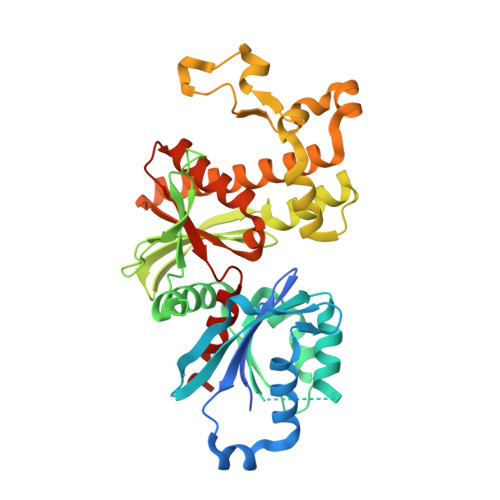A therapeutic approach to pantothenate kinase associated neurodegeneration.
Sharma, L.K., Subramanian, C., Yun, M.K., Frank, M.W., White, S.W., Rock, C.O., Lee, R.E., Jackowski, S.(2018) Nat Commun 9: 4399-4399
- PubMed: 30352999
- DOI: https://doi.org/10.1038/s41467-018-06703-2
- Primary Citation of Related Structures:
6B3V - PubMed Abstract:
Pantothenate kinase (PANK) is a metabolic enzyme that regulates cellular coenzyme A (CoA) levels. There are three human PANK genes, and inactivating mutations in PANK2 lead to pantothenate kinase associated neurodegeneration (PKAN). Here we performed a library screen followed by chemical optimization to produce PZ-2891, an allosteric PANK activator that crosses the blood brain barrier. PZ-2891 occupies the pantothenate pocket and engages the dimer interface to form a PANK?ATP?Mg 2+ ?PZ-2891 complex. The binding of PZ-2891 to one protomer locks the opposite protomer in a catalytically active conformation that is refractory to acetyl-CoA inhibition. Oral administration of PZ-2891 increases CoA levels in mouse liver and brain. A knockout mouse model of brain CoA deficiency exhibited weight loss, severe locomotor impairment and early death. Knockout mice on PZ-2891 therapy gain weight, and have improved locomotor activity and life span establishing pantazines as novel therapeutics for the treatment of PKAN.
Organizational Affiliation:
Department of Infectious Diseases, St. Jude Children's Research Hospital, Memphis, TN, 38105, USA.


















